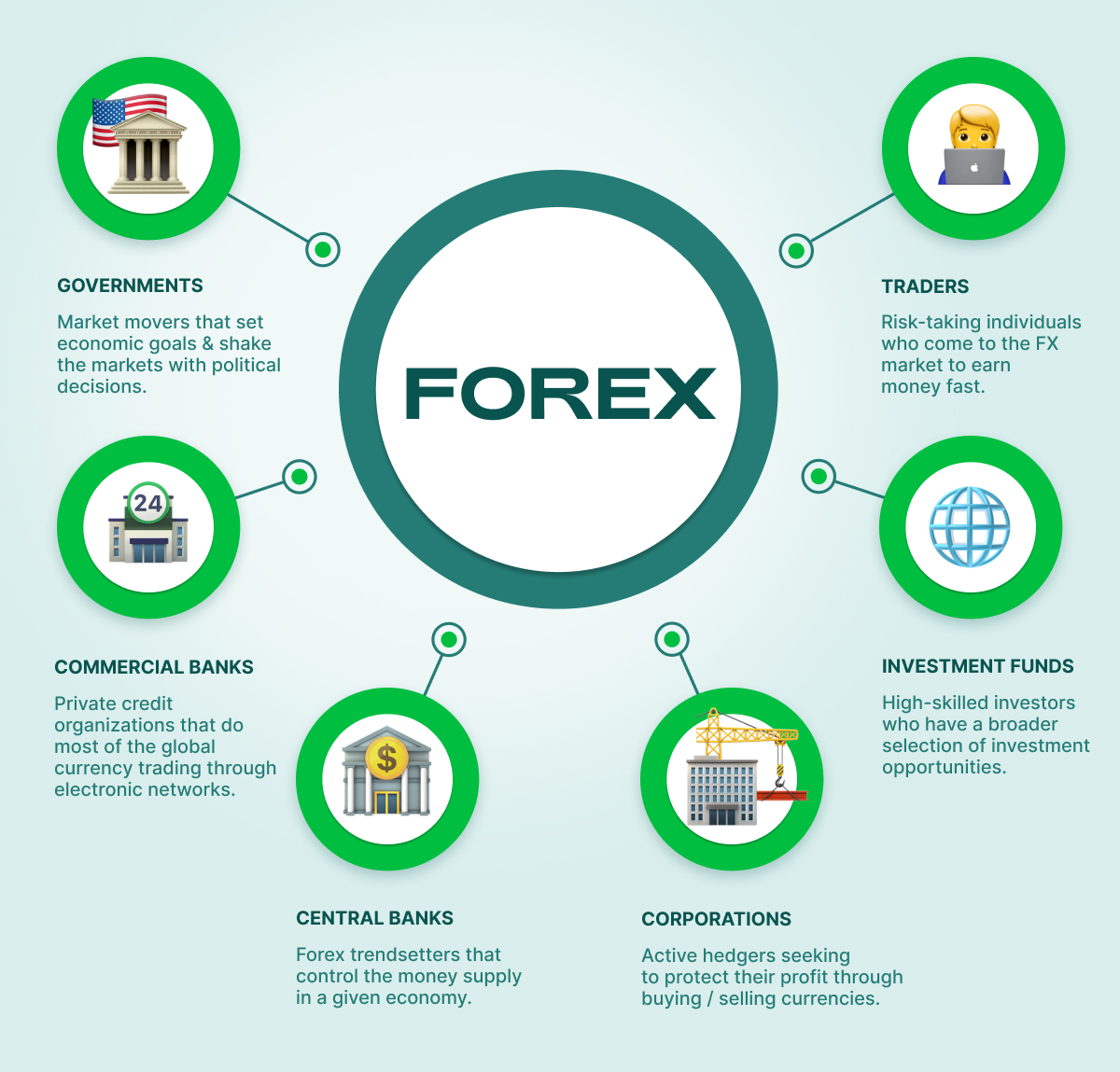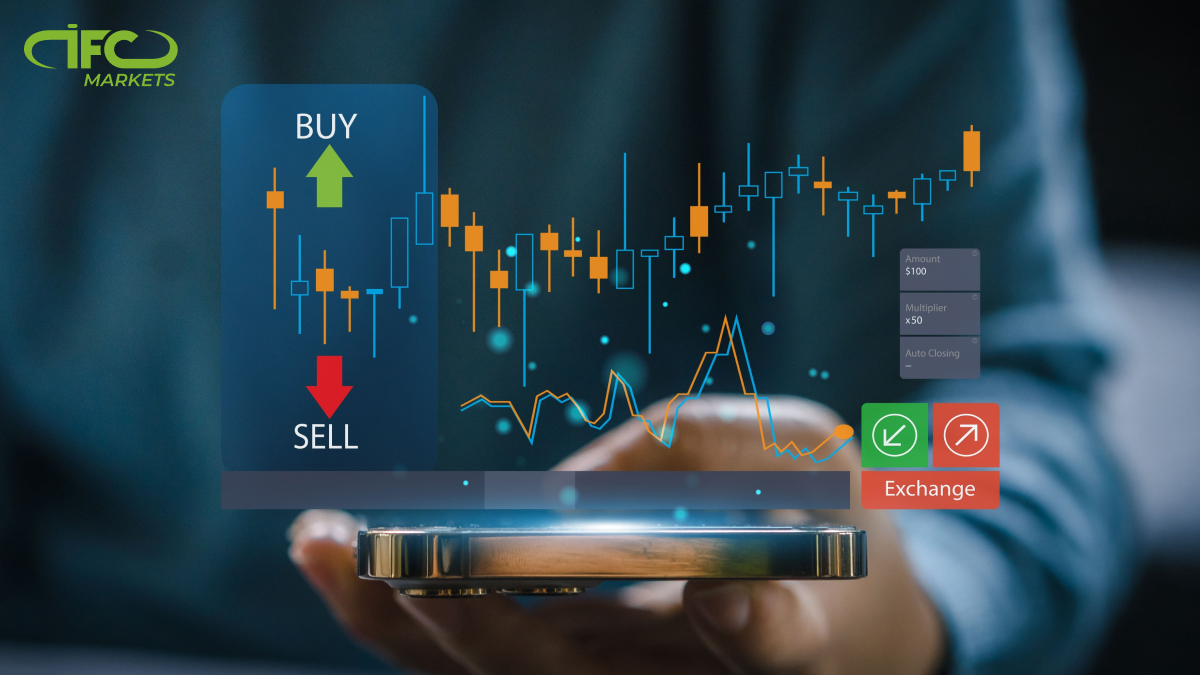Unveiling the Secrets of the Forex Market: How it Works and Empowers You

Image: www.merchpechblog.pythonanywhere.com
In the ever-expanding realm of global finance, there exists a dynamic and intriguing market that holds the power to shape economies and potentially enhance personal wealth – the foreign exchange (forex) market. It’s a vast global marketplace where currencies from different nations are bought, sold, and exchanged. Navigating this market requires an understanding of its intricate workings. Join us on an enlightening journey as we unravel the secrets of the forex market and empower you with knowledge.
Demystifying the Forex Market: A Foundation of Understanding
At the heart of the forex market lies the fundamental concept of currency exchange. When you travel to a foreign land, you need to convert your home currency into that of your destination. This is where the forex market steps in. The value of one currency in relation to another is constantly fluctuating, influenced by a multitude of economic, political, and social factors.
The forex market operates 24 hours a day, five days a week, across the globe. It’s a decentralized market, meaning it has no central physical location. Transactions occur electronically over-the-counter (OTC), through a network of banks, financial institutions, and individual traders.
Exploring the Major Players: Market Participants
The forex market is a diverse arena inhabited by a wide range of participants, each playing a crucial role in the market’s dynamics. These players include:
- Central Banks: The monetary authorities of their respective countries, such as the Federal Reserve in the United States or the European Central Bank, who intervene in the market to influence exchange rates and control inflation.
- Commercial Banks: Intermediaries between individual and institutional clients, facilitating currency exchange and providing other financial services related to international trade.
- Investment Banks: Sophisticated financial institutions that trade large volumes of currencies for profit. They often provide liquidity to the market and facilitate hedging strategies for institutional clients.
- Hedge Funds: Specialized investment funds that employ advanced strategies to profit from fluctuations in currency markets.
- Retail Traders: Individual traders who participate in the forex market with varying levels of expertise and capital.
The Essence of Currency Pairs: Understanding the Exchange Mechanism
Currencies are traded in pairs. When you buy or sell a currency, you’re simultaneously selling or buying the other currency in the pair. The value of a currency pair is expressed as the exchange rate, which indicates how many units of one currency are required to purchase one unit of the other.
Currency pairs are commonly represented in the following format: EUR/USD, GBP/JPY, USD/CHF. In each pair, the first currency is known as the base currency, while the second currency is the quote currency. The exchange rate indicates how much of the quote currency is needed to buy one unit of the base currency.
The Forces Shaping Currencies: Factors Influencing Exchange Rates
Exchange rates are constantly in flux, influenced by a myriad of factors. These factors can be categorized as follows:
- Economic Factors: Economic growth, inflation, unemployment, and interest rates, all play a significant role in determining the value of a currency.
- Political Factors: Political stability, government policies, and geopolitical events can have a significant impact on currency valuations.
- Social Factors: Cultural trends, consumer behavior, and natural disasters can also contribute to exchange rate fluctuations.
Trading in the Forex Market: Strategies for Success
Engaging in the forex market can present both opportunities and risks. To navigate this dynamic environment successfully, aspiring traders often adopt one or more of the following strategies:
- Scalping: Fast-paced trading that involves taking numerous small profits over short time frames.
- Day Trading: Buying and selling currencies within a single trading day, with the aim of closing all positions before the end of the day.
- Swing Trading: Holding currencies for several days or weeks, aiming to profit from medium-term price swings.
- Position Trading: Holding currencies for extended periods, often months or years, with a long-term view of market direction.
Embracing the Transformative Power of Knowledge
Understanding the inner workings of the forex market empowers you with the knowledge to make informed decisions when dealing with foreign currencies, whether for personal finances or business endeavors. By equipping yourself with this knowledge, you can:
- Stay informed about global economic trends and their potential impact on exchange rates.
- Make informed decisions about foreign exchange rates for travel or international trade.
- Develop strategies to hedge against currency risks and protect your financial interests.
Conclusion: A Gateway to Global Finance
The forex market is a vast and intricate entity, yet understanding its mechanics is vital for anyone seeking to navigate the world of international finance effectively. By delving into the complexities of the forex market, you gain a precious tool that can provide insights into global economic trends and empower you to make informed decisions. Embark on this journey of discovery and unleash the transformative power of knowledge.

Image: www.ifcmarkets.com
Forex Market How It Works






